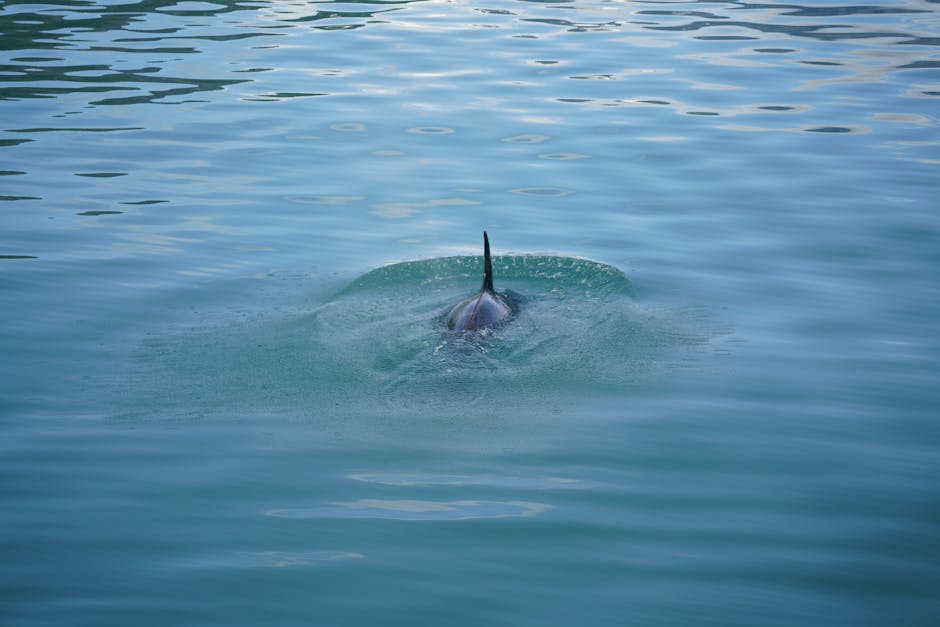Cetaceans, the order encompassing whales, dolphins, and porpoises, are colossal players in the intricate dance of marine ecosystems. Their substantial presence, encompassing a diverse array of species with varying feeding strategies and life histories, profoundly influences nutrient cycling, trophic dynamics, and biodiversity within the ocean. A deep understanding of their roles illuminates the delicate balance of these systems and underscores the critical need for their conservation.
Varied Feeding Strategies, Varied Impacts
Whales exhibit an astonishing diversity in their dietary preferences, leading to equally diverse impacts on the marine environment. Baleen whales, sifting through vast quantities of zooplankton and small fish with their specialized baleen plates, play a significant role in regulating the populations of their prey. Their feeding activities can impact the distribution and abundance of these prey species, influencing the entire food web. This, in turn, reverberates through successive trophic levels, affecting species from small fish to larger predators. Oceanic ecosystems in the presence of baleen whales often experience shifts in the zooplankton community structure, highlighting the influence exerted by these massive filter feeders.
Predatory whales, such as orcas and other toothed species, also exert considerable influence on marine ecosystems. They play a vital role in controlling the population of certain prey species. This predation can significantly alter fish populations and affect the overall structure of the ecosystem. Furthermore, the predation pressure exerted by these whales can drive prey species to adopt behavioral adaptations, which might impact their overall distribution and interactions with other species.
Beyond direct consumption, whale carcasses, or whale falls, serve as crucial hotspots of biological activity. The decomposition process of a whale carcass provides a rich source of nutrients, attracting a diverse array of scavengers and supporting a unique ecosystem for an extended period. This nutrient influx, released into the surrounding environment, can stimulate the growth of other organisms and affect the overall productivity of the region. Furthermore, the presence of these carcasses provides essential resources for a variety of species, highlighting the profound impact of even a deceased whale on the ecosystem.
Ecosystem Engineering and Nutrient Cycling
Whales’ impact extends beyond direct consumption and carcass decomposition. Their movements, migration patterns, and even their sheer presence contribute to the overall ecological dynamics of the ocean. These giants, in their pursuit of food, travel vast distances, potentially transporting nutrients across different regions. Their migrations often coincide with productive areas, further promoting the transfer of nutrients and increasing the overall productivity of the ecosystem.
Additionally, whale feces provide a valuable source of nutrients, especially iron, for phytoplankton in the water column. Phytoplankton are the foundation of the marine food web, and the nutrient enrichment from whale waste can stimulate their growth, thereby impacting the entire ecosystem’s productivity. This is particularly important in regions with limited nutrient availability. The contribution of whale guano to nutrient cycling adds another layer of complexity to the intricate relationships within these vast marine communities.
Beyond Feeding: The Importance of Biodiversity
The role of whales extends further. Their sheer size and presence affect various aspects of the ecosystem, from altering current patterns to shaping the behaviour of other marine animals. A substantial impact lies in their contribution to biodiversity. The presence of whales can influence the diversity of species at various trophic levels, impacting the overall health and resilience of marine ecosystems. The richness of species found in areas frequented by whales often contrasts with regions lacking their presence, highlighting their significant contribution to biodiversity.
Conservation Implications
Given the profound and multifaceted role whales play in marine ecosystems, their conservation is paramount. The loss of whale populations can lead to cascading effects throughout the food web, disrupting the delicate balance and potentially destabilizing the entire ecosystem. Overfishing, habitat degradation, entanglement in fishing gear, and pollution are all significant threats to whale populations. Addressing these threats requires a holistic approach, encompassing international cooperation, sustainable fishing practices, and mitigation efforts to minimize human impact on whale habitats.
Concluding Remarks
Whales are integral components of marine ecosystems, influencing everything from nutrient cycling to biodiversity. Their diverse feeding strategies, movements, and even their carcasses shape the intricate web of life within the oceans. Understanding and appreciating their contributions are crucial for conserving these magnificent creatures and safeguarding the health and stability of the marine environment for generations to come. Further research into the specific roles of different whale species and the impacts of human activities on these animals is vital for ensuring their survival and the ongoing health of our oceans. We must recognise and protect the critical role these giants play in the vast ocean symphony.
